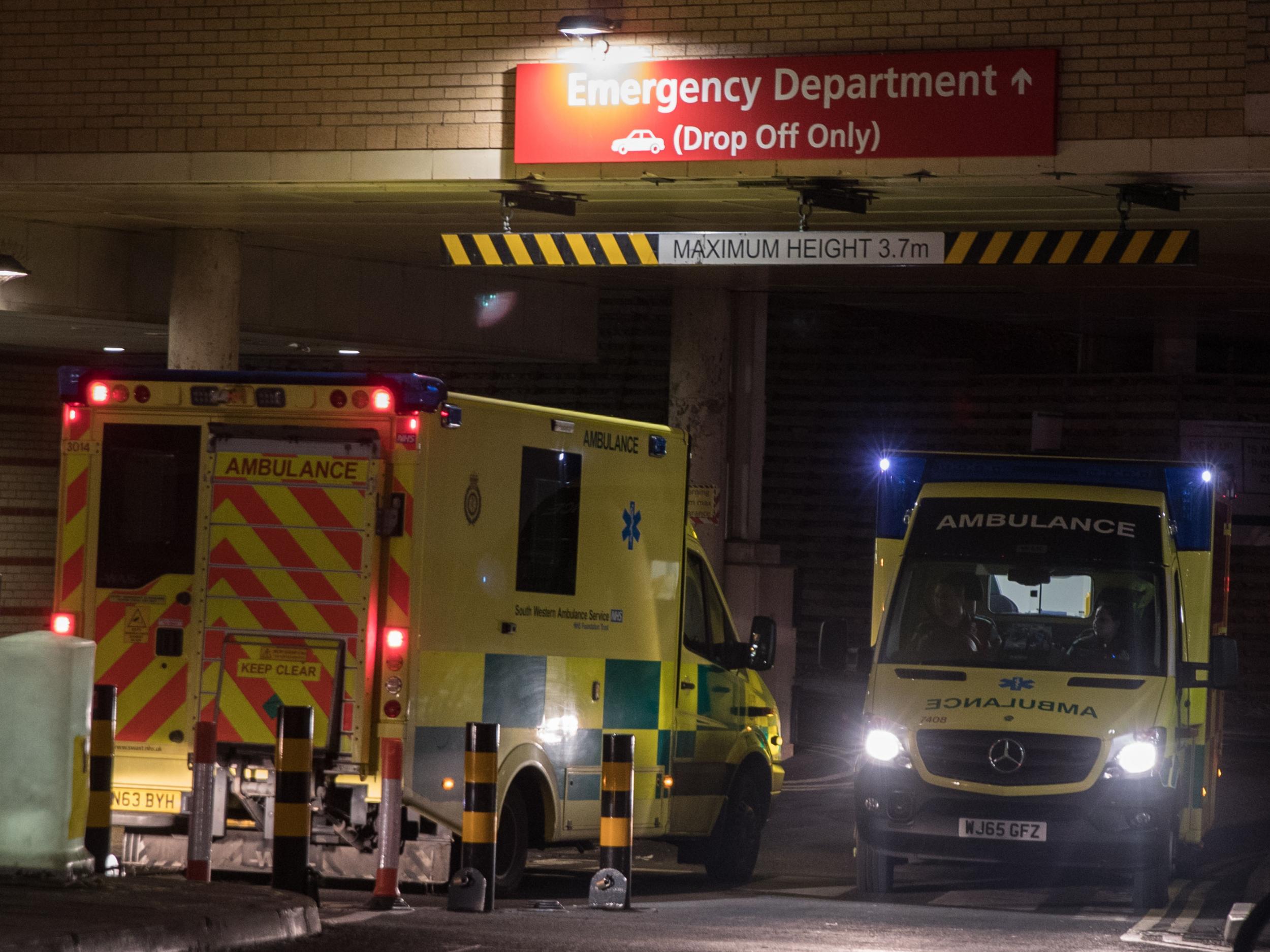Our entire country is in denial about the NHS, including Philip Hammond
As a society we’re in denial about this necessary trade-off between the rising demand for healthcare and the rates of tax we’re prepared to bear


Your support helps us to tell the story
From reproductive rights to climate change to Big Tech, The Independent is on the ground when the story is developing. Whether it's investigating the financials of Elon Musk's pro-Trump PAC or producing our latest documentary, 'The A Word', which shines a light on the American women fighting for reproductive rights, we know how important it is to parse out the facts from the messaging.
At such a critical moment in US history, we need reporters on the ground. Your donation allows us to keep sending journalists to speak to both sides of the story.
The Independent is trusted by Americans across the entire political spectrum. And unlike many other quality news outlets, we choose not to lock Americans out of our reporting and analysis with paywalls. We believe quality journalism should be available to everyone, paid for by those who can afford it.
Your support makes all the difference.Imagine a large barrel that we pull apart, reconstruct and expand (at considerable expense) every year.
Imagine we need to store a certain amount of precious liquid in that barrel. Now imagine that the amount of liquid we need to store each year is rising faster than the volume of the renovated barrel. The result is overspill and flooding, which makes everyone unhappy.
Here we have a description of the NHS crisis.
Politicians have “protected” public spending on health since 2010. That means public spending on health has been rising in line with economy-wide inflation (unlike most other government departments, which have had to bear significant real-terms cuts). We spend more than £145bn of taxpayers’ money on health, around 7.5 per cent of our GDP. That’s up from just 3 per cent in the 1950s. NHS spending as a share of overall public spending is approaching 20 per cent, double the proportion of 30 years ago.
And yet there are reports of record A&E waiting times, warnings of “permanent winter” in the provision of health services and new plans for cuts. According to a BBC analysis, NHS managers around England are proposing to scale back hospital services in nearly two-thirds of areas.
What is going on? Why are we spending so much but still seeing such pressures? The answer is that the demand for services is rising faster than the new capacity of the NHS.
The UK population is ageing and older people, on average, have greater healthcare demands than younger generations. The proportion of residents aged over 90 has almost tripled since the early 1980s. The ratio of pensioners to the working-age population is projected to rise from around 30 per cent today to 37 per cent by 2040. By the way, this dependency ratio will go even higher if the number of new EU immigrants (who overwhelmingly tend to be of working age) falls sharply due to Brexit.
On top of this, heathcare inflation has outstripped general inflation since the NHS was founded and is likely to continue to do so as new drugs and high-tech medical equipment come onto the market.
In short, the volume of liquid is growing faster than the size of our barrel.
Now imagine there’s a house next door. The volumes of liquid the neighbours need to deal with are rising too. They too have fast ageing populations. But they have built barrels which are much larger than ours. Germany spends 9.4 per cent of its GDP on public healthcare, France 8.6 per cent.
There are various ways we in Britain can address the problem of overspill. We can try and reduce the amount of liquid we have to deal with. We can take try to encourage people to adopt healthier lifestyles so they require less healthcare when they reach old age. Yet that’s not going to help much in the immediate term.
We can try to make the barrel bigger through driving productivity increases in the health service, making existing resources stretch further. But that’s easier said than done. And productivity increases are often unpopular. Nothing unites a community more effectively than a threat to close a local hospital.
Finally, we can, collectively, pay more in taxes to fund bigger increases in the overall size of the barrel each year. In next month’s Budget, Chancellor Philip Hammond is likely to increase public resources available to fund elderly social care, helping to relieve some pressure on the NHS. There may even be more money pledged for the NHS directly.
But no one expects the Chancellor to outline the kind of structural upward shift in the national tax take that would be necessary to get us out of this bind; significantly more resources for barrel building.
To some extent this is a failure of political leadership. Conservative ministers have trumpeted real-terms protection for the NHS budget, while presiding over a severe de facto squeeze on funding, encouraging people to believe that we are spending enough.
But the blame goes wider. As a society we’re in denial about this necessary trade-off between meeting a rising demand for healthcare and keeping tax rates at their current levels. And until this changes, expect the NHS crisis to continue lapping around our ankles.
Join our commenting forum
Join thought-provoking conversations, follow other Independent readers and see their replies
Comments